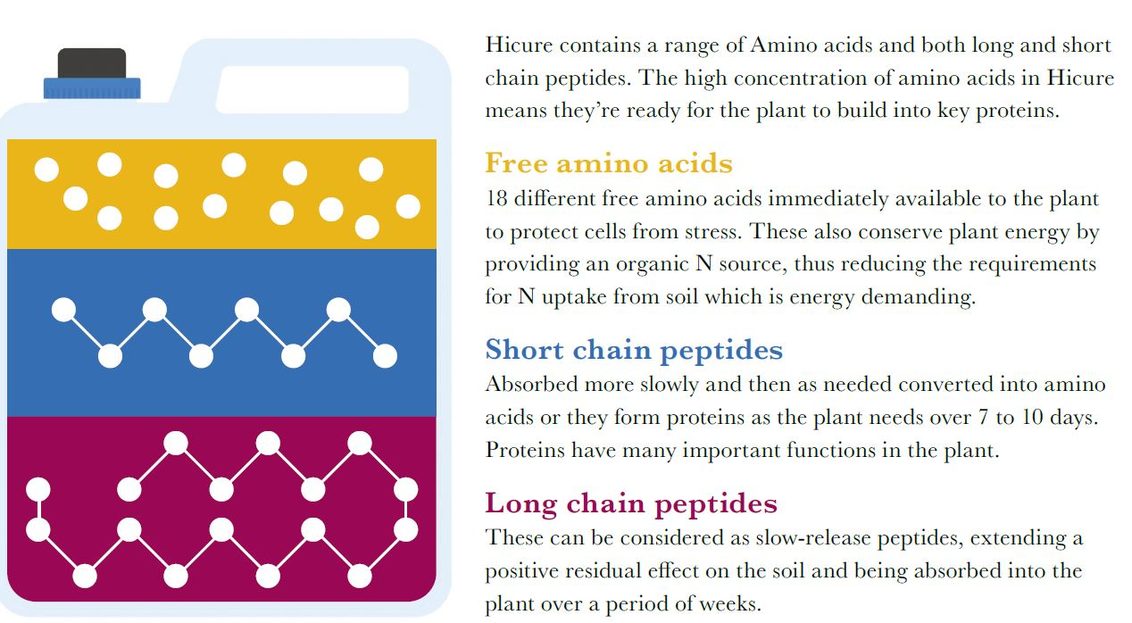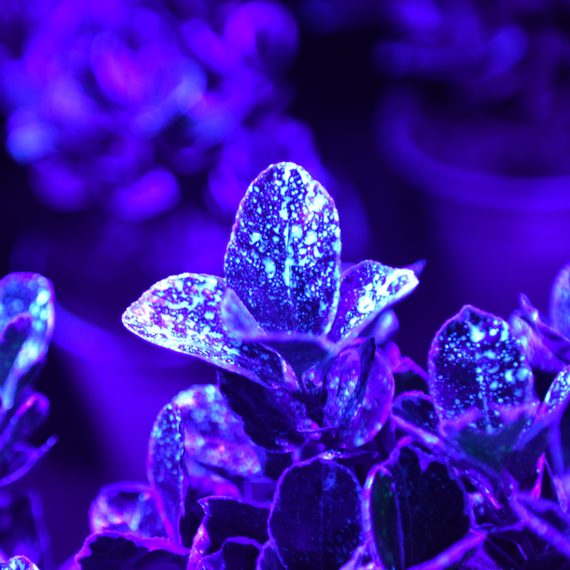Amino acids are building blocks for proteins which play an essential role in the life of a plant. Proteins are responsible for the cell structure, but they also control all the different chemical processes in the plant – from photosynthesis to transporting nutrients or regulating flowering.
Under optimal growing conditions, plants synthesise their own amino acids through thousands of chemical reactions. The creation of proteins by linking specific amino acids – initially into chains known as peptides – also consumes a lot of energy. Reducing that energy cost allows it to be redirected to other aspects of growth and development.
Under periods of abiotic stress, plants decrease their production of amino acids and can even break down structural proteins to ‘recycle’ the required amino acids. A source of “ready to use” amino acids means the plant won’t have to invest energy making them from scratch and the need to break down proteins is reduced. It will even have an additional supply of building blocks to help create the proteins required to counter the stress it is experiencing. This results in improved health, growth and vigour.
In our trials we saw that supplying the additional amino acids in Hicure led to greater root mass, longer shelf life as well as improved health, growth and vigour which was more resistant to disease.





